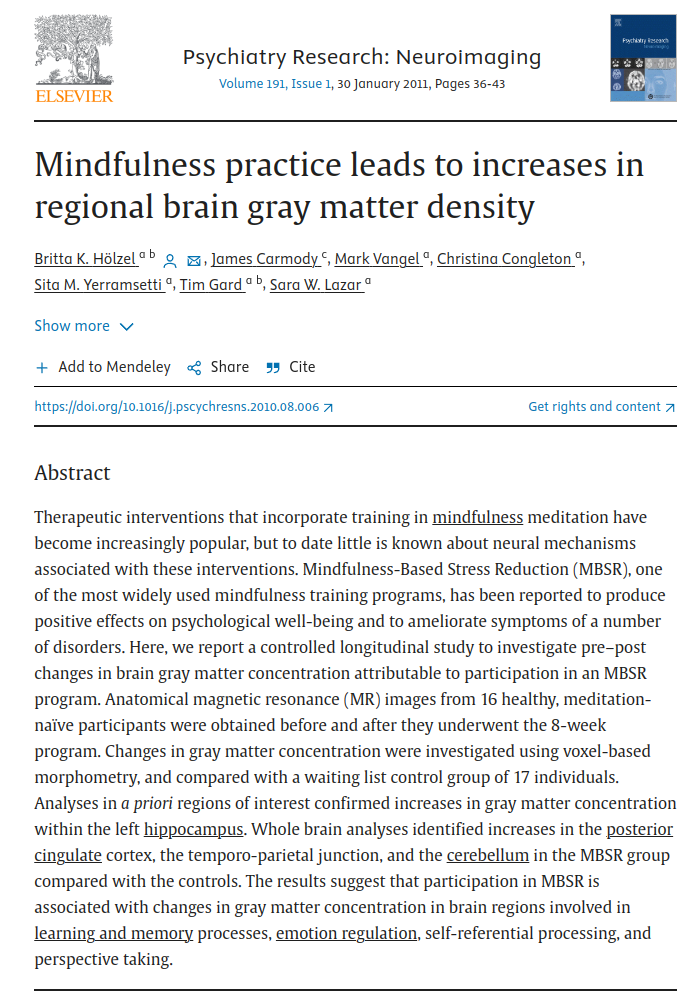Therapeutic interventions that incorporate training in mindfulness meditation have become increasingly popular, but to date, little is known about neural mechanisms associated with these interventions. Mindfulness-Based Stress Reduction (MBSR), one of the most widely used mindfulness training programs, has been reported to produce positive effects on psychological well-being and to ameliorate symptoms of a number of disorders. Here, we report a controlled longitudinal study to investigate pre-post changes in brain gray matter concentration attributable to participation in an MBSR program. Anatomical MRI images from sixteen healthy, meditation-naïve participants were obtained before and after they underwent the eight-week program. Changes in gray matter concentration were investigated using voxel-based morphometry, and compared to a wait-list control group of 17 individuals. Analyses in a priori regions of interest confirmed increases in gray matter concentration within the left hippocampus. Whole brain analyses identified increases in the posterior cingulate cortex, the temporo-parietal junction, and the cerebellum in the MBSR group compared to the controls. The results suggest that participation in MBSR is associated with changes in gray matter concentration in brain regions involved in learning and memory processes, emotion regulation, self-referential processing, and perspective taking.
Mindfulness practice leads to increases in regional brain gray matter density
Publication
Psychiatry Research: Neuroimaging
Volume 191, Issue 1
Abstract
Web and Email Links
Related Listings
Journal
Frontiers in Aging Neuroscience
Numerous studies have documented the normal age-related decline of neural structure, function, and cognitive performance. Preliminary evidence suggests that meditation may reduce decline in specific cognitive domains and in brain structure. Here we extended this research by investigating the relation between age and fluid intelligence and resting state brain functional network architecture using graph theory, in middle-aged yoga and meditation practitioners, and matched controls. Flui […]
Journal
IEEE Access
Relaxation helps to reduce physical, mental, and emotional pressure. Relaxation techniques generally enable a person to obtain calmness and well-being by reducing stress, anxiety, or anger. When a person becomes calm the body reacts physiologically, producing the so-called Relaxation Response (RResp) which affects the organism in a positive manner, no matter if it is during a state of relaxation or in the middle of a stressful period. The goal of this paper is to design a system capab […]
Journal
Behavior Therapy
The majority of individuals with insomnia treated with single behavioral interventions do not achieve normal sleep. In this study, individuals with chronic sleep-onset insomnia (n=12) were treated with a sequentially administered multifactor behavioral intervention consisting of sleep restriction, modified stimulus control, and relaxation training. They were compared to age- and sex-matched normal sleepers (n=14) prior to and following treatment using home-based polysomnography and po […]

